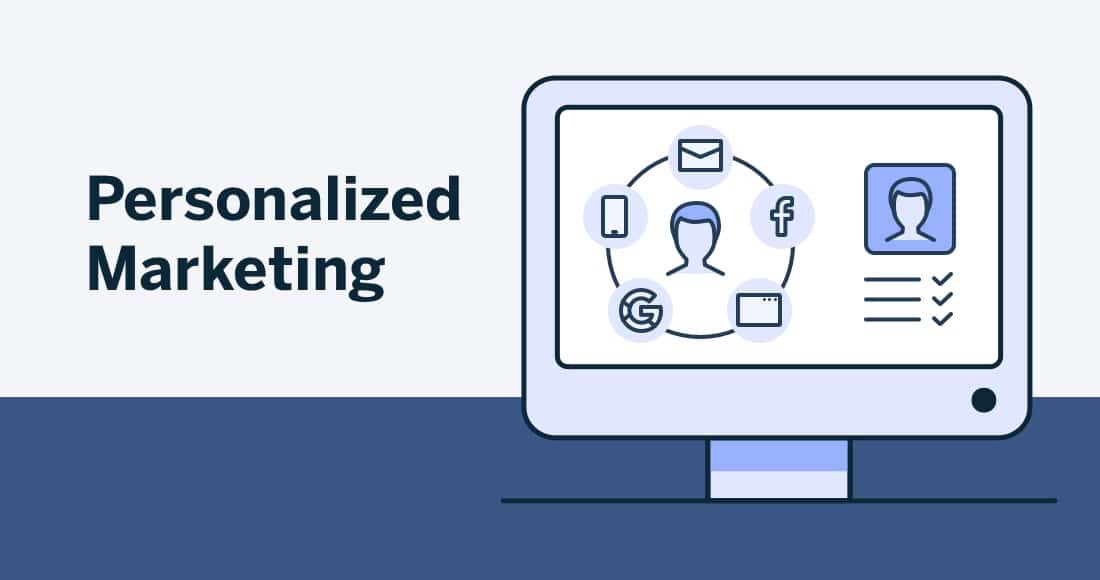A relationship email in email marketing is a type of communication that aims to build trust and strengthen connections with subscribers. It focuses on nurturing leads and fostering long-term relationships with customers.
Relationship emails are personalized, informative, and engaging to maintain ongoing engagement with the audience. By providing valuable content, addressing customer needs, and enhancing brand loyalty, relationship emails play a crucial role in successful email marketing campaigns. As a powerful tool for building customer relationships, relationship emails help businesses establish rapport and drive conversions effectively.
Effective relationship emails are tailored to the target audience’s preferences and interests, creating a positive and lasting impact on recipients.
The Power Of Email Marketing
A relationship email in email marketing refers to a type of message aimed at nurturing and establishing a connection with the recipients. These emails focus on engaging with the audience, building trust, and delivering valuable content, rather than solely promoting products or services.
By fostering relationships, businesses can drive customer loyalty and retention, ultimately leading to higher conversion rates.
The Impact Of Email Marketing
Email marketing has proven effective in reaching and engaging with a wide audience. It allows businesses to connect with customers on a personal level.
Why Personalization Matters
Personalization in emails creates a tailored experience for recipients. It increases engagement and drives conversions. Relationship Email in Email Marketing Relationship emails are designed to nurture a connection with subscribers. They focus on building trust and loyalty. Types of relationship emails include welcome emails, newsletters, and follow-up messages after purchases. These emails aim to keep subscribers engaged and informed about your brand and offerings. Consistent communication is key. Utilize personalization by addressing subscribers by name and sending relevant content based on their preferences. By sending relationship emails, you can strengthen customer relationships and encourage repeat business.
Understanding Relationship Emails
Defining Relationship Emails
Relationship emails are messages sent to subscribers with the primary objective of building trust and maintaining connections. These emails focus on establishing a rapport with the audience rather than pushing for immediate sales.
Objectives Of Relationship Emails
- Create Engagement: Relationship emails aim to engage subscribers in meaningful ways, such as by providing valuable content or personalized recommendations.
- Build Trust: By consistently delivering relevant and helpful information, these emails strengthen trust between the brand and the audience.
- Nurture Loyalty: Relationship emails foster loyalty among subscribers by demonstrating the brand’s commitment to serving their needs.
Importance Of Personalization
Personalized Content
Email marketing is all about establishing and nurturing relationships with your audience. One of the key ways to do this is through personalized content. When you tailor the emails you send to each individual, taking into account their preferences, behaviors, and demographics, you create a more personal connection. This not only makes the recipient feel valued and understood but also increases the likelihood of engagement and conversion. Personalized content can include addressing the recipient by name, tailored product recommendations, or even acknowledging the recipient’s recent interactions with your brand.
Building Trust And Loyalty
Personalization in email marketing plays a crucial role in building trust and loyalty with your audience. When people feel that you understand their needs and preferences, they are more likely to trust your recommendations and continue engaging with your brand. Consistently delivering personalized emails can help foster a sense of loyalty and encourage repeat purchases. Building this relationship of trust through personalization can lead to long-term customer loyalty and positive word of mouth for your brand.

Credit: www.revfine.com
Crafting Effective Relationship Emails
In the world of email marketing, crafting effective relationship emails is key to building a strong connection with your audience. Relationship emails are a type of email that focuses on nurturing and developing a relationship with your subscribers. These emails are not focused on selling, but rather on providing value and building trust. In this article, we will explore some strategies for creating relationship emails that will engage your audience and help you achieve your marketing goals.
Segmenting Your Audience
One of the key strategies for crafting effective relationship emails is segmenting your audience. Segmenting allows you to divide your subscribers into smaller groups based on their interests, preferences, or behavior. By sending targeted emails to these specific segments, you can tailor your content to their needs and interests, increasing the likelihood of engagement. Segmenting your audience also allows you to ensure that your emails are relevant and personalized, which can have a significant impact on open and click-through rates.
Writing Compelling Content
When it comes to crafting effective relationship emails, compelling content is crucial. Your emails should be informative, valuable, and engaging to capture the attention of your subscribers. Here are some tips for writing compelling content:
- Keep it concise: Use short sentences and paragraphs to make your content easy to read and digest.
- Use storytelling: Weave stories into your emails to make them more relatable and memorable.
- Add personalization: Address your subscribers by their names and use personalization tokens to make your emails feel more personalized.
- Include visuals: Use images, videos, or infographics to enhance your content and make it visually appealing.
- Include a clear call-to-action: Direct your subscribers to take a specific action, such as clicking a link or downloading a resource.
By following these tips, you can create compelling email content that resonates with your subscribers, encourages engagement, and strengthens your relationship with them.
Utilizing Data For Personalization
In email marketing, personalization is key to building strong relationships with your subscribers. Utilizing data for personalization enables you to deliver tailored and relevant content to your audience, increasing engagement and conversion rates.
Leveraging Customer Data
When it comes to relationship emails, leveraging customer data is essential. By gathering information about your subscribers, such as their preferences, demographics, and past interactions with your brand, you can create targeted and meaningful email communications.
| Types of Customer Data | Examples |
|---|---|
| Demographics | Age, gender, location |
| Behavioral Data | Past purchases, website browsing history |
| Preferences | Product interests, communication channels |
Automation And Dynamic Content
To effectively utilize customer data, automation and dynamic content play a crucial role. Automation allows you to set up triggers and workflows that send personalized emails based on specific customer actions or events. This ensures timely and relevant communication throughout the customer journey.
Dynamically generated content allows you to tailor the email content itself based on individual customer data. By inserting personalized elements, such as the subscriber’s name, location, or recommended products, you can create a personalized experience that resonates with your audience.
The following code snippet demonstrates how dynamic content can be implemented:
Dear [subscriber_name], we have some exciting offers just for you! Check out our latest deals in [subscriber_location].
Incorporating such dynamic elements not only grabs the attention of your subscribers but also makes them feel valued and understood.
By utilizing customer data and implementing automation and dynamic content, you can take your relationship emails to the next level. Delivering personalized and relevant messages that resonate with your subscribers will foster loyalty and drive the desired actions, ultimately boosting your email marketing success.

Credit: emarsys.com
Optimizing Engagement And Conversions
Building a connection with your subscribers through relationship emails is crucial for maximizing engagement and conversions in email marketing. By nurturing a strong rapport with your audience, you can significantly improve the effectiveness of your campaigns. Let’s explore some strategies to optimize engagement and drive conversions in your relationship emails.
Call-to-action Strategies
Utilizing effective call-to-action (CTA) strategies within your relationship emails is essential for driving engagement and ultimately, conversions. Strong, compelling CTAs prompt recipients to take desired actions, such as making a purchase, visiting a website, or signing up for a service. Consider using action-oriented language and high-contrast buttons to draw attention to your CTAs. Furthermore, strategically placing your CTAs and testing variations can help determine which approach yields the best results.
A/b Testing For Effectiveness
A/B testing is an invaluable tool for determining the effectiveness of your relationship emails. By conducting controlled experiments to compare different versions of your emails, you can uncover insights into what resonates most with your audience. Elements to consider for A/B testing include subject lines, content layout, visuals, and CTAs. Analyzing the results enables you to make data-driven decisions and continually refine and improve your email campaigns to better engage subscribers and boost conversions.
Measuring Success
Key Metrics To Track
When analyzing relationship emails in email marketing, tracking key metrics is essential to gauge effectiveness.
Refining And Improving Strategies
Continuously refining and enhancing strategies based on performance data leads to increased engagement and conversions.
Future Trends In Email Marketing
The landscape of email marketing is evolving rapidly with the integration of innovative technologies and strategies. Let’s delve into the future trends shaping the realm of email marketing.
Ai And Predictive Personalization
Artificial Intelligence (AI) is revolutionizing email marketing by enabling predictive personalization. Through AI algorithms, emails are tailored based on customer behavior, maximizing engagement.
Interactive Email Experiences
Interactive emails provide engaging experiences, offering dynamic content that prompts user interaction within the email interface itself.
Frequently Asked Questions Of In Email Marketing What Is A Relationship Email
What Is A Relationship Email In Email Marketing?
A relationship email in email marketing is a type of email that is sent to establish and nurture a connection with subscribers. It focuses on building trust, providing value, and fostering a long-term relationship with the audience. Relationship emails are often personalized and tailored to the recipient’s interests and preferences.
Why Are Relationship Emails Important In Email Marketing?
Relationship emails are important in email marketing because they help to cultivate a loyal and engaged audience. By providing valuable content, personalized recommendations, and exclusive offers, relationship emails can strengthen the connection between businesses and their subscribers. This leads to higher open rates, click-through rates, and ultimately, better conversion rates.
How Can Relationship Emails Improve Customer Retention?
Relationship emails can improve customer retention by consistently delivering relevant and valuable content to subscribers. By understanding their preferences and behavior, businesses can send targeted emails that resonate with their audience, keeping them engaged and interested in the brand. Relationship emails also provide opportunities to gather feedback, address concerns, and offer personalized solutions, increasing customer satisfaction and loyalty.
Conclusion
Relationship emails are essential for building trust and loyalty with your audience. By focusing on providing value and strengthening connections, you can improve customer engagement and drive conversions. Understanding the importance of relationship emails in email marketing will help you establish long-term, fruitful relationships with your subscribers.
